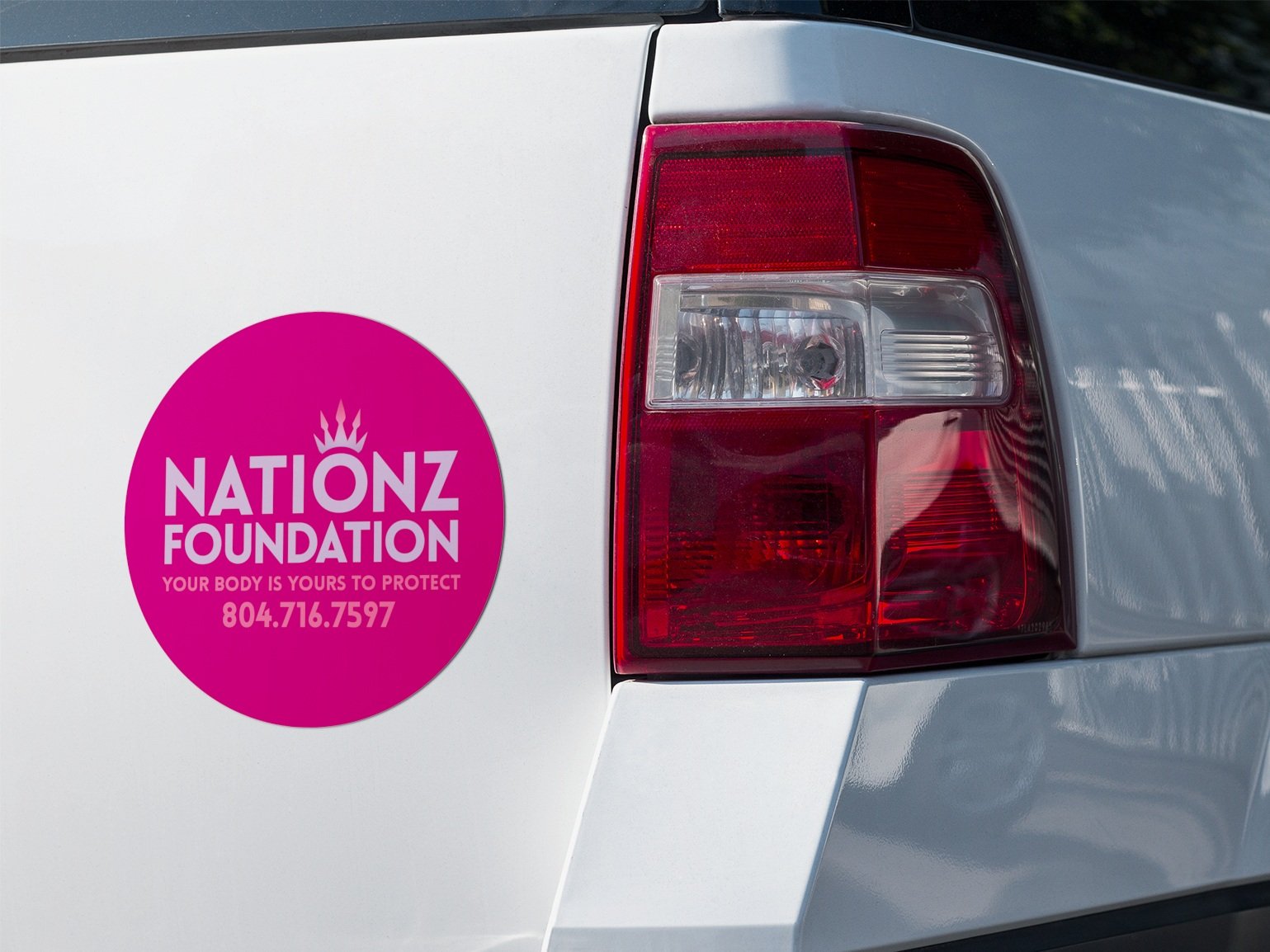DESTIGMATIZING HIV/STI TESTING
What is Nationz?
The Nationz Foundation is non-profit organization based in Richmond, VA. They provide the LGBTQIA+ Richmond community with access to HIV and STI testing as well as healthcare management and holistic health practices.
They frequently organize special events and support groups for LGBTQIA+ individuals, and they are one of the leading local organizations in HIV/AIDS advocacy and prevention.
Zakia Mckensey, the founder of Nationz, is featured in a CNN documentary that showcases the incredible work she is doing for the community. You can watch it here!
While Nationz provides many resources for LGBTIA+ individuals, they really want to emphasize their mission to spread education and awareness regarding STI testing. They want our help understanding what leads to people not getting tested for STIs, evaluating the public’s knowledge regarding STIs and STI testing, as well as new branding and merch.
THE ASK:
Our research began by signing up for a volunteer orientation with Nationz. We wanted to experience what the volunteer process is like and get more familiar with the work Nationz has been doing.
We then spoke with Dena Potter, the Director of Communications for the Virginia Department of General Services. She played a pivotal role in leading the Vaccinate Virginia program during the outbreak of COVID-19. By speaking with Dena, we learned best practices for communicating vital, health-related information across social platforms.
Research Methodology:
Objective:
People view STI/HIV testing as something they should do only once they perceive themselves as being at risk.
Through our surveys and interviews, we discovered that most people do not get tested for STIs unless they have a symptom that leads them to believe something is wrong. The problem with this is that many STIs are asymptomatic, meaning you may unknowingly pass an infection on to a partner without regular testing.
The National Conference of State Legislatures found that, “An estimated 15% of people with HIV do not know they have it and 40% of new infections are transmitted by people unaware of their status.“
Problem:
Change the perception of STI/HIV testing from a crisis response to a routine procedure.
Target:
Youth between the ages of 15-25, especially black LGBTQ+ individuals.
This was a demographic that the client specifically asked us to focus on reaching. This target was supported by our research where we found that as of 2021, 46% of all new STIs occurred in people between the ages of 15-24 according to the CDC.
Additionally, the CDC found that racial and ethnic minorities are at a higher risk for contracting STIs. Through our work with Nationz, we wanted to ensure that we were addressing this health inequity.
Insight:
People fear being at the mercy of their own body.
A study conducted by OnePoll found that 6/10 Americans have delayed going to the doctor for fear of receiving a negative diagnosis. What’s more, 1/3 of Americans had their conditions worsen by delaying their appointments.
If you can logically assume your condition may worsen by not seeking treatment, why do more people not visit the doctor? Well, no one likes to be confronted with the fact that we don’t have as much control over our circumstances as we’d like to believe.
This project included the talents of Mariah Kumpe (Art Director), Jackson Amirshahi (Social Content), and Rachel Spiller (Copywriter).
Key Message:
Your body is yours to protect.
We need to remind people that at the end of the day, your body is a precious gift and it’s up to you to protect it. While we don’t have control over all circumstances, we’re each responsible for giving ourselves, and our bodies, the best fighting chance.
DELIVERABLES
New Branding:
The Nationz Foundation’s original logo features a crown, to represent Zakia’s love for and history with pageants. Additionally, Nationz hosts a pageant every year.
The original branding also included the color purple, which represents royalty. Both the crown and the color purple were very important to Nationz, so we made sure to carry them over into the new branding.
We refreshed the original logo with a bold sans serif font, and included the crown as a secondary logo. For the colors, we made sure purple was front and center, as well as some red shades to symbolize health and wellness, with red being the color of AIDs awareness.
Campaign Materials:
For this campaign, Nationz emphasized their need for social content, print materials, and new merch. In addition to creating social media templates, we provided them with several videos for their social feed that bring awareness to their cause and brand.
The client loved the creative brief’s key message, Your body is yours to protect, so much that they requested it be added to all of the new merch.
Mission Statement
We aim to end the stigma around HIV and STIs by providing accessible education and support in the Greater Richmond Area.
Original Logo
Fonts and Colors
New Logo
Additionally, we interviewed students on Virginia Commonwealth University’s campus to see what the average student’s understanding of safe sex practices and STI testing was like. We also used these interviews to determine what kept people from getting tested for STIs more often.
Alongside conducting secondary research, we also created two surveys that we distributed across multiple social platforms. The first was to determine the factors affecting which organizations people donate to and volunteer with.
The second survey gathered responses regarding STI/HIV testing and awareness. Through this survey we also received several first-hand accounts about respondents testing experiences.
The biggest barriers to getting tested are the stigma involved with STIs and HIV, and a lack of knowledge regarding testing. The best way to combat this is to change testing from an emergency response to a routine procedure, similar to a skin exam or mammogram.
According to an NPR interview with David Harvey, executive director of the National Coalition of STD Directors, “Patients aren't asking to be tested, and doctors aren't doing enough testing and doing sexual health histories as part of primary care.”















